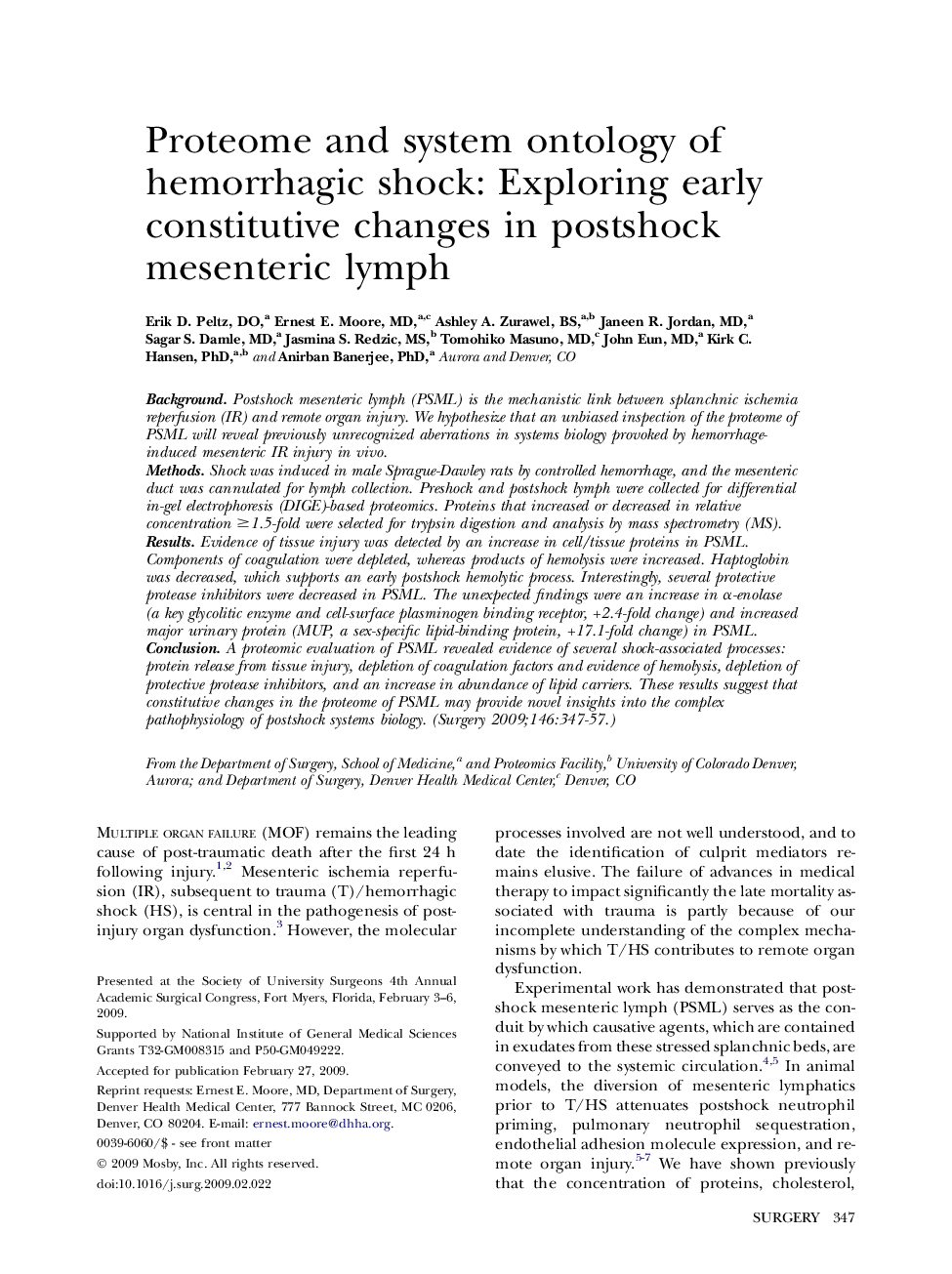| Article ID | Journal | Published Year | Pages | File Type |
|---|---|---|---|---|
| 4309403 | Surgery | 2009 | 11 Pages |
BackgroundPostshock mesenteric lymph (PSML) is the mechanistic link between splanchnic ischemia reperfusion (IR) and remote organ injury. We hypothesize that an unbiased inspection of the proteome of PSML will reveal previously unrecognized aberrations in systems biology provoked by hemorrhage-induced mesenteric IR injury in vivo.MethodsShock was induced in male Sprague-Dawley rats by controlled hemorrhage, and the mesenteric duct was cannulated for lymph collection. Preshock and postshock lymph were collected for differential in-gel electrophoresis (DIGE)-based proteomics. Proteins that increased or decreased in relative concentration ≥1.5-fold were selected for trypsin digestion and analysis by mass spectrometry (MS).ResultsEvidence of tissue injury was detected by an increase in cell/tissue proteins in PSML. Components of coagulation were depleted, whereas products of hemolysis were increased. Haptoglobin was decreased, which supports an early postshock hemolytic process. Interestingly, several protective protease inhibitors were decreased in PSML. The unexpected findings were an increase in α-enolase (a key glycolitic enzyme and cell-surface plasminogen binding receptor, +2.4-fold change) and increased major urinary protein (MUP, a sex-specific lipid-binding protein, +17.1-fold change) in PSML.ConclusionA proteomic evaluation of PSML revealed evidence of several shock-associated processes: protein release from tissue injury, depletion of coagulation factors and evidence of hemolysis, depletion of protective protease inhibitors, and an increase in abundance of lipid carriers. These results suggest that constitutive changes in the proteome of PSML may provide novel insights into the complex pathophysiology of postshock systems biology.
